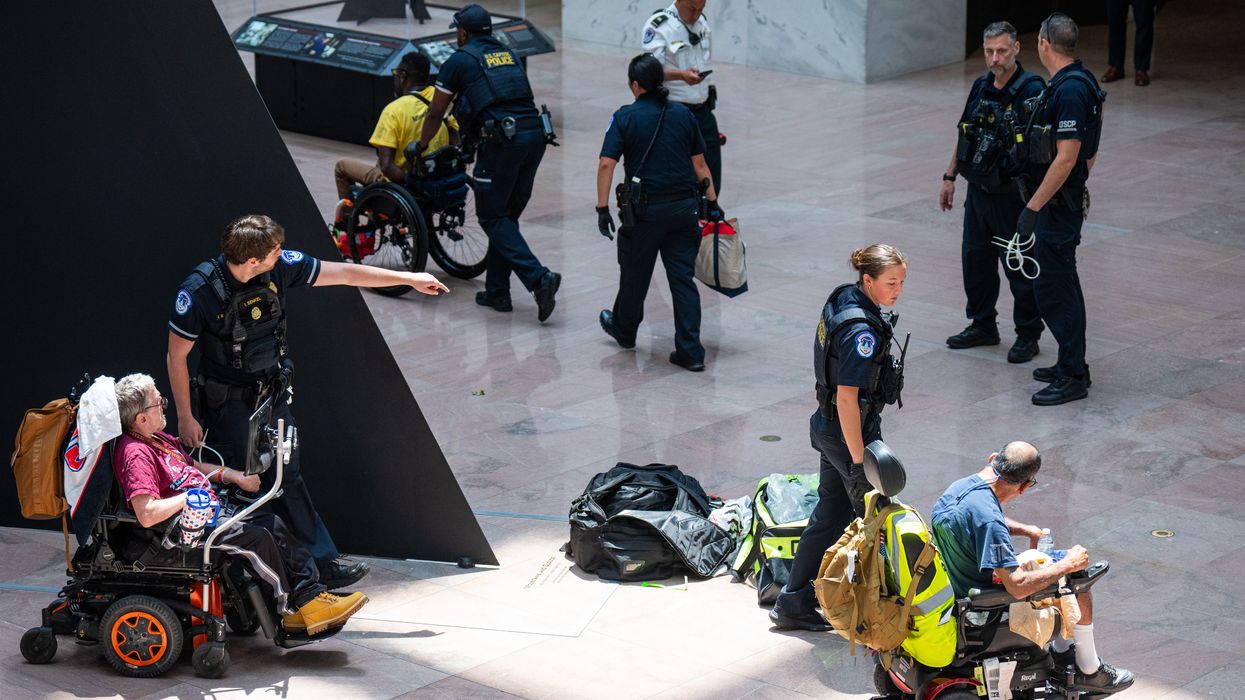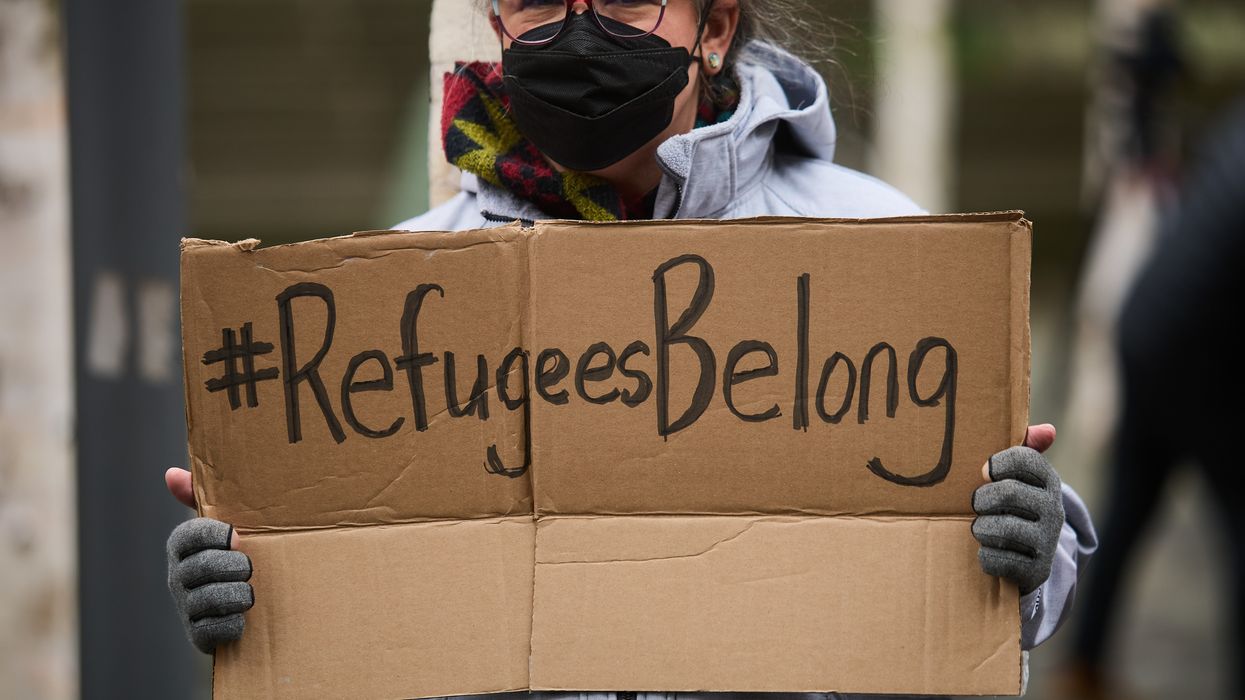This year, Disability Pride Month arrives under a government that is actively tearing down the few protections we have left. Programs that kept us out of institutions—gone. Jobs focused on accessibility—eliminated. Community care infrastructure—defunded, dismantled, or disappeared entirely. And somehow, no one’s sounding the alarm. Or perhaps there are too many alarms going off at once, and nobody can distinguish them anymore.
There’s no parade for the disabled workers quietly laid off when Diversity, Equity, Inclusion, and Accessibility (DEIA) offices were shuttered. No ribbon cutting for the collapse of the Administration for Community Living. No national reckoning when misinformation about disability spreads on federal letterhead and leads to real-world harm. Harm like the little people I know who were harassed in airports after the Federal Aviation Administration (FAA) became a political target following the D.C plane crash when our president attributed the disaster to our community.
What we’re seeing now is the result of years of bipartisan disinvestment. It’s just happening louder, faster, and crueler than before.
This isn’t bureaucratic drift. It’s intentional. And it’s happening while the rest of the country posts inspirational quotes about inclusion.
I run New Disabled South with the mission of improving the lives of disabled people and building strong disability justice and rights movements in the South, and I can tell you: This moment is not about pride. It’s about survival.
The Trump administration recently directly attacked a federal employment program that helped place disabled people in jobs across agencies like the FAA. Instead of telling the truth, they called it a “diversity hiring” loophole and singled out specific disabilities, including dwarfism. The backlash from right-wing radical folks was immediate and violent. And still, no one covered it.
And yet, the rollback didn’t start this year. It didn’t even start with this administration. President Ronald Reagan, with a Republican Senate from 1981-1987, launched a major campaign to reduce the size of the federal government. Significant cuts to Social Security Disability Insurance (SSDI) and Supplemental Security Income (SSI) led to hundreds of thousands of people losing disability benefits after aggressive reevaluations.
And now, anti-DEI rhetoric has escalated into anti-access policy. Entire programs and research centers have been shuttered under the guise of neutrality. Leaders who run centers for racial and disability justice are currently fighting lawsuits claiming that simply existing in these spaces is discriminatory. The irony would be laughable if it weren’t so destructive.
The people affected by these attacks are the ones making our country more livable, accessible, and just. These aren’t abstract programs. These are lifelines. I know, because I grew up on them.
My parents relied on Medicaid home and community-based services (HCBS) to care for my siblings and me at home. We were triplets, all with cerebral palsy. Doctors encouraged my parents to put us into institutions. But because of HCBS and other programs, we weren’t institutionalized—we were raised in our own home, in our own community, with the people we love. I’m here because of that care. And I’m terrified that families like mine won’t get the same chance.
This is the part where I’m supposed to offer hope. But here’s the truth: We are being failed. And it’s time to name that, without softening it.
Disability justice is not a one-month-a-year conversation. It is not a post. It is not a panel. And it cannot be siloed off from broader fights for racial, gender, and economic equity. Being a part of this community, we are not a niche. We are a movement. This affects us all; more than 1 in 4 adults in the United States have some type of disability, and that’s not counting the number of people who have been and continue to be disabled from Covid-19. And we are all deeply, inextricably linked to every community being attacked right now.
When Black students lose access to equity progra
When LGBTQ+ protections are stripped away, disabled people lose.
When DEI offices are dissolved, accessibility gets erased too.
And when we talk about disability, we must also talk about race, poverty, gender, sexuality, and geography. Especially in the South, where I live and organize, policy decisions made in D.C. don’t just ripple—they rupture. The South has the nation’s highest rates of disability, and it’s been made clear with recent cuts to Medicaid and other essential programs that the federal government isn’t coming to save us. No matter who’s in charge, disability is too often treated as an afterthought at best or a political liability at worst. What we’re seeing now is the result of years of bipartisan disinvestment. It’s just happening louder, faster, and crueler than before.
We need care webs—mutual aid rooted in relationships, not rescue. These are informal, hyper-local networks where people look out for one another. Not just with money or donations, but with time, attention, and consistency. Someone to check in. Someone to help navigate a job search or bureaucratic nightmare. Someone to drive you to the doctor when paratransit doesn’t show up. Someone who knows your access needs and shows up anyway.
This isn’t about creating a perfect system. It’s about refusing to let each other fall through the cracks.
Building a care web can be as simple as texting a neighbor, posting in a local group, or organizing around one person’s immediate needs. You don’t have to be disabled to start one. You just have to decide that no one should be left behind because a government decided they didn’t matter.
These may seem like small acts, but they are how we survive. They are how we resist.
So this month, skip the slogans. Ask: Who do I know that needs care? Who will I support when the next cut comes? What am I building that lasts beyond this news cycle? Or this election cycle?
That’s the work. That’s the rage. And that’s how we move forward together.




